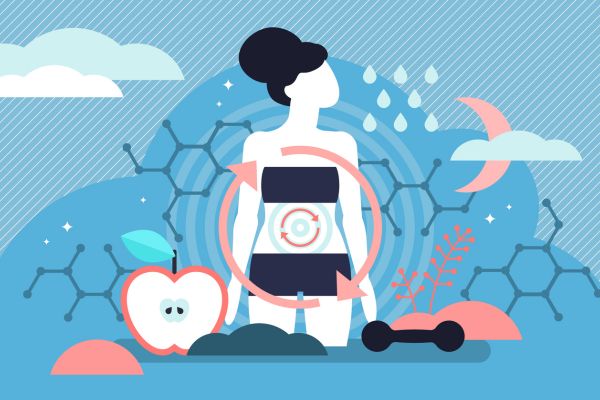
From the Desk of Carolyn Dean MD ND
The Rising Fertility Crisis: Male and Female Factors in Unexplained Infertility
Why 30% of Infertility Cases Remain a Mystery – And How Toxins Play a Role
Fertility is a major focus for couples trying to conceive, and for decades, the burden was placed almost entirely on women. Today we know better. Fertility challenges are split between male and female factors – for men (low sperm count and/or low testosterone) and women (endometriosis, trouble ovulating or damaged fallopian tubes).
In fact, mainstream fertility experts claim that a third of the problem can be traced to the male partner, a third to the female partner and another percentage could be attributed to both partners combined. And yet, a significant portion remains as medically “unexplained” mysteries—a category that has grown alongside rising infertility rates.
These unexplained and “unexplainable” medical mysteries are one of the reasons I’ve written over 50 books. Over the last two decades, as fertility clinics have multiplied and fertility issues have skyrocketed, I’ve spoken and written extensively about fertility, infertility, and natural fertility support.
Coming Off the Birth Control Pill: Does It Really Affect Your Fertility Long-Term?
How Synthetic Hormones Shut Down Ovulation: The Science Explained
If up to 30% of infertility is unexplained, then why are medical experts so quick to say that the birth control pill (BCP) does not contribute to or cause fertility problems?
Here’s what I know. When I was in medical school, the birth control pill was developed but only recommended for five years and no more than 10.
Yet girls as young as 12 are given BCP to calm symptoms associated with painful or irregular periods. This is before their natural menstrual rhythm has even developed. They’re given synthetic hormones—lab-made estrogen and progesterone—long before they or their body knows what a normal cycle feels like.
Over the years, countless women have told me they wished their parents and doctors hadn’t put them on the pill so young. They didn’t have a say in the matter – they didn’t understand the implications, and they weren’t given the choice
Biochemically, the explanation is simple. In the presence of daily synthetic estrogen and progesterone, the pituitary gland shuts down its production of FSH (follicle-stimulating hormone) and LH (luteinizing hormone). FSH stimulates the growth of ovarian follicles, and a surge in LH is required for ovulation. On the pill, neither process occurs. That’s exactly how it prevents pregnancy—and why hormone balance can take time to restore once you stop the pill. The good news is that fertility returns for 83% of women within 12 months post-discontinuation, with no increased miscarriage risk.
How Long After Stopping the Birth Control Pill Can You Get Pregnant? (My 12-Month Rule)
Most mainstream medical advice tells women they might get pregnant within months of discontinuing the BCP. Just have unprotected sex and hope for the best.
For many women, this is the first time their natural hormones have been asked to function on their own.
My recommendation for optimal preconception health is to use another form of birth control for at least a year before trying to conceive. Here’s why:
The pill is metabolized by the liver which requires extra amounts of the B-complex vitamins, vitamin C, vitamin E, magnesium, selenium, and zinc. Decades of use can overwork the liver create nutritional deficiencies, and contribute to weight gain, fluid retention, mood changes, depression, and even heart disease.
Preconception Diet: The Best Foods and Supplements to Boost Fertility Naturally
All nutritional deficiencies must be corrected long before attempting to create a new human being. Every vitamin and mineral is required in early embryonic development. That means:
- A clean, nutrient-dense, ideally organic diet
- No sugar, food additives, processed foods, or aspartame
- No smoking, alcohol, or recreational drugs
For more detailed guidance on an ideal diet to prepare for conception you can read my book, Total Body ReSet for Women
A year of optimized nutrition and targeted supplementation gives the body time to restore balance, replenish minerals, and create a healthier internal environment for pregnancy.
Otherwise, you’re creating a new life in a depleted, toxic Petrie dish.
Boosting Male Fertility: How Men Can Increase Sperm Count Naturally in 12 Months
The Couple’s Detox: Matching Diets for Healthier Conception and Babies
Fertility is not a women-only concern. What I’ve consistently witnessed is that couples who commit to one year of natural fertility preparation have healthier conception experiences, healthier pregnancies, and, ultimately, healthier babies with stronger nutritional baselines.
Men need to match their partner’s commitment to a clean diet and lifestyle. Semen quality and sperm count are directly affected by nutritional status, toxins, stress, and lifestyle choices.
That means:
- No smoking of any kind
- No coffee or alcohol
- No processed foods
- The same nutrient-dense diet the woman adopts
Yes, she is creating a healthy physical environment in which to grow a child, but that foundation is weakened if the male contribution is riddled with malnourished, toxic-burdened, nutrient-deficient sperm. Partners need to be on the same page nutritionally and lifestyle-wise in order to increase the changes of a positive outcome.
Start Your Fertility Detox Today: Top Supplements and Action Steps for Couples
There is no single “fertility supplement.” All vitamins and minerals are involved in making a new life. For comprehensive fertility support, I recommend:
- Food-based vitamins, including Whole C and D3K2 ReSet
- My stabilized ions of picometer minerals found in ReMag, ReMyte, and Pico Selenite have the minerals required to restore depleted cells, tissues, and organs
- Omega-3 fatty acids found in Omega 3 Algal A+E
If you’re ready to move from confusion and waiting rooms to real answers and real preparation, begin with the basics laid out here. A full year of committed, nutrient-dense living for both partners has transformed the fertility journeys of thousands of women and couples I’ve worked with over the decades. Your body already knows how to conceive and carry a healthy baby—it just needs the right conditions to remember. Start creating those conditions now.
The bottom line
- Long-term birth control pill use (especially starting young) depletes nutrients and suppresses your natural hormones longer than most doctors admit.
- “Fertility returns in 12 months for most women” is true — but that doesn’t mean your body is truly ready to create a healthy baby right away.
- Jumping straight from the pill into trying to conceive is like planting a seed in depleted, toxic soil.
- Both partners need to take responsibility — infertility is never just “her problem.”
Carolyn Dean, MD ND
The Doctor of the Future



